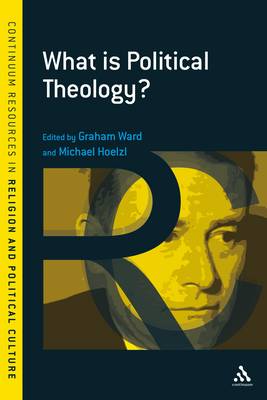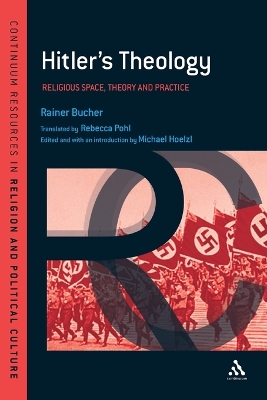Continuum Resources in Religion and Political Culture
2 total works
This book presents a thorough discussion and analysis of the concept of political theology, and its appropriation by various thinkers from when it was first coined by Carl Schmitt. Answering the question of what political theology is, at a time when the term is widely used by theologians, political scientists, and cultural theorists, "What is Political Theology?" distinguishes between 'political theology', 'public theology', 'civil religion' and 'liberation theology', also paying attention to the distinction between religion and theology. With 'political theology', a term coined by Carl Schmitt in the 1920s, we are concerned with the political aspects of a systematic discourse on what it is to believe in God from a Christian perspective. Outlining Schmitt's ideas as they were elaborated between 1922 and 1969 and their subsequent critical reception in theology, the authors engage with both those contemporary Left Wing thinkers who have re-appropriated Schmitt and the theologians who have critical debated with these thinkers.
Having identified the theological lacuna that Schmitt did not distinguish between theology and metaphysics or even between theology and religion, the authors examine the theological use of political theology both in the German and English speaking worlds as the main foci of political theology as a theological genre. The relationship between religion and politics is both fascinating and challenging, and recent years have seen substantial changes in the way this relationship is studied. Aimed at undergraduates studying in this area, titles in this series look specifically at the key topics involved in the relationship between religion and politics, taking into account a broad range of religious perspectives, and presenting clear, approachable texts for students grappling with often complex concepts.
Having identified the theological lacuna that Schmitt did not distinguish between theology and metaphysics or even between theology and religion, the authors examine the theological use of political theology both in the German and English speaking worlds as the main foci of political theology as a theological genre. The relationship between religion and politics is both fascinating and challenging, and recent years have seen substantial changes in the way this relationship is studied. Aimed at undergraduates studying in this area, titles in this series look specifically at the key topics involved in the relationship between religion and politics, taking into account a broad range of religious perspectives, and presenting clear, approachable texts for students grappling with often complex concepts.
This is a systematic reconstruction and critique of Hitler's use and abuse of theological concepts, and demonstration of their fundamental importance for the rise of National Socialism. "Hitler's Theology" investigates the use of theological motifs in Adolf Hitler's public speeches and writings, and offers an answer to the question of why Hitler and his theo-political ideology were so attractive and successful presenting an alternative to the discontents of modernity. The book gives a systematic reconstruction of Hitler's use of theological concepts like providence, belief or the almighty God. Rainer Bucher argues that Hitler's (ab)use of theological ideas is one of the main reasons why and how Hitler gained so much acquiescence and support for his diabolic enterprise. This fascinating study concludes by contextualizing Hitler's theology in terms of a wider theory of modernity and in particular by analyzing the churches' struggle with modernity. Finally, the author evaluates the use of theology from a practical theological perspective.
This book will be of interest to students of Religious Studies, Theology, Holocaust Studies, Jewish Studies, Religion and Politics, and German History. The relationship between religion and politics is both fascinating and challenging, and recent years have seen substantial changes in the way this relationship is studied. Aimed at undergraduates studying in this area, titles in this series look specifically at the key topics involved in the relationship between religion and politics, taking into account a broad range of religious perspectives, and presenting clear, approachable texts for students grappling with often complex concepts.
This book will be of interest to students of Religious Studies, Theology, Holocaust Studies, Jewish Studies, Religion and Politics, and German History. The relationship between religion and politics is both fascinating and challenging, and recent years have seen substantial changes in the way this relationship is studied. Aimed at undergraduates studying in this area, titles in this series look specifically at the key topics involved in the relationship between religion and politics, taking into account a broad range of religious perspectives, and presenting clear, approachable texts for students grappling with often complex concepts.

